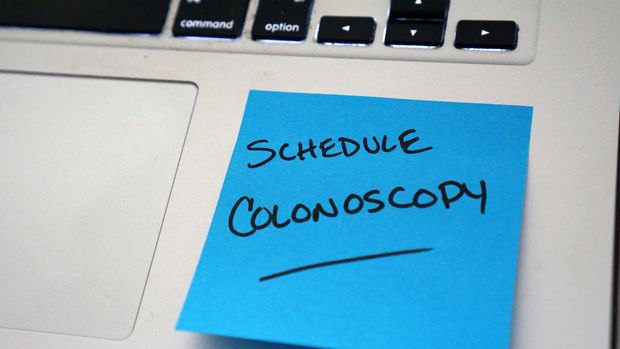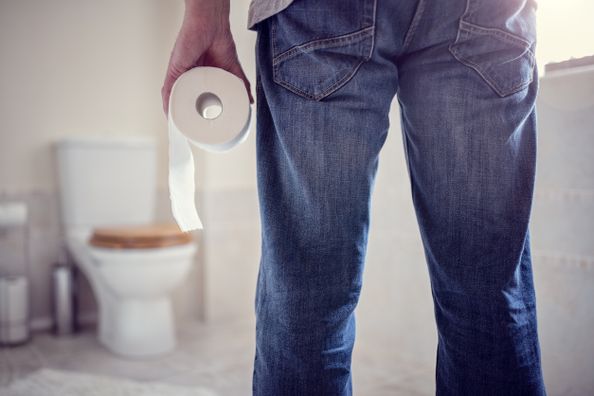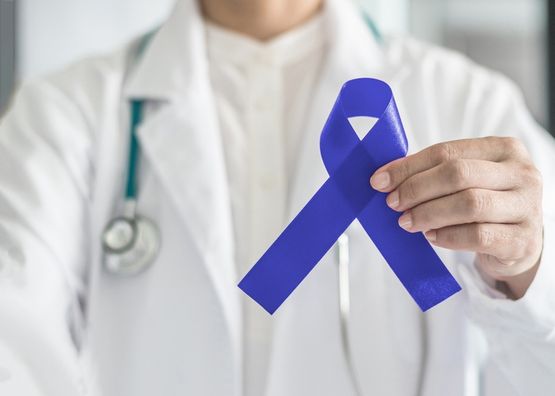Irritable bowel syndrome (IBS) is a functional disorder of the colon that causes a variety of uncomfortable gastrointestinal symptoms. In addition to affecting between 25 – 55 million people in the United States, IBS is the second highest cause of illness-related work absences. During normal digestion, your brain and gut work together to send signals to your hormones, nerves and the good bacteria found in your gut to activate the muscles of your colon. When you are experiencing an IBS episode, these signals become jumbled, causing the muscles of your digestive tract to become tense. This leads to symptoms such as constipation or diarrhea, gas and stomach cramping. IBS symptoms and their severity vary by person, but often include:
- Stomach pain or cramping, usually in your lower abdomen, that improves after a bowel movement
- Stomach bloating or gas
- Changes in bowel movements, including shape and frequency
- Feeling unable to completely empty your bowel
- Visible mucus in your stool
- Nausea with or without vomiting
IBS symptoms account for nearly one-third of all visits to digestive health specialists, or gastroenterologists, each year. IBS can be difficult to diagnose, as it doesn’t cause physical signs of inflammation or the formation of ulcers and other abnormalities within your digestive tract. IBS is often diagnosed only after other digestive disorders have been ruled out.
Different types of IBS can be classified based on the symptoms you are experiencing.
- Constipation-predominant IBS (C‑IBS) is the most common type, accounting for about half of all IBS cases. Common symptoms include stomach discomfort such as bloating, cramping and constipation. You may have C‑IBS if you regularly produce less than three bowel movements per week.
- Diarrhea-predominant IBS (D‑IBS) affects about one-third of those with IBS with common symptoms including stomach pain, frequent diarrhea and increased bowel-movement urgency. You may have D‑IBS if you produce 12 or more bowel movements in a week.
- Alternating constipation and diarrhea (A‑IBS) is the least common type of IBS. While it is only found in only about 20 percent of people with IBS, its symptoms tend to be more frequent and severe. A‑IBS causes alternating episodes of constipation and diarrhea, often accompanied by stomach pain.
In addition to being difficult to diagnose, IBS triggers are different for each person. IBS episodes are often associated with one or more of the following factors:
- Diet: Almost two-thirds of people with IBS experience diet-related episodes. Common food-related triggers include caffeine, gluten, lactose, processed foods and foods high in fat.
- Gut Health: The amount and type of bacteria present in your gut can have a significant impact on your digestive system and its ability to function normally.
- Hormones: Shifts in hormone levels can trigger an IBS episode. Women commonly experience worsening symptoms on or around their monthly cycle.
- Mood: Changes in your mood including anxiety, depression or stress can cause an IBS episode.
- Sleep habits: Nearly half of individuals with IBS experience difficulty sleeping and increased fatigue. Poor sleep can increase your chances of having a flair-up the next day.
While the exact cause of IBS is unknown, there are several factors that can increase your risk of developing IBS, including:
- Age: IBS is more common in individuals under the age of 50.
- Family history: You are more likely to develop IBS if other members of your family also have the disorder.
- Gender: Women are twice as likely as men to develop IBS, which is likely due to hormonal differences between the genders.
- Infections: While rare, you can develop IBS symptoms after contracting a stomach bug or gastroenteritis.
- Mental health conditions: Anxiety, depression and other mental health conditions can increase your risk.
Treatment for IBS is based on your symptoms and individual triggers. It can be helpful to keep a food journal and track your symptoms and their severity to identify patterns and triggers. Diet and lifestyle changes may help minimize your symptoms, including:
To help alleviate gas, bloating, stomach pain, diarrhea or constipation, adjust your diet to limit the amount of FODMAPs (carbohydrates found in certain foods like wheat and beans), dairy and processed foods.
- Eat smaller, more frequent meals rather than a few larger meals each day.
- Test or introduce new foods into your diet when your symptoms and stress levels are low.
- Slowly increase your fiber intake to help regulate your bowel movements. If you experience diarrhea, opt for soluble fibers like black beans, broccoli, brussels sprouts and sweet potatoes. If you suffer from constipation, try insoluble fibers including nuts, seeds, lentils and oat bran. Some soluble fibers like psyllium, flaxseed and fenugreek (commonly found in breads, cereals and rice cakes) can be effective for those who struggle with both diarrhea and constipation.
- Avoid digestive stimulants like alcohol, caffeine or sugar.
- Regular exercise can help regulate digestion and your bowel movements, especially if you suffer from chronic constipation.
- Drink plenty of water, at least 8 – 10 glasses per day.
- Identify ways to manage anxiety and stress.
- Your doctor may recommend you take a daily probiotic to help maintain the amount of good bacteria present in your gut.
Depending on the severity and frequency of your symptoms, IBS can have a significant impact on your quality of life. Due to its unpredictability, living with IBS can cause increased anxiety and may lead to social avoidance or isolation. It’s important to remember that IBS is not caused by leaving your house. With some preparation and anxiety management techniques, IBS should not prevent you from doing the things you enjoy.
Ways to regain control of your life and health when living with IBS include:
- Talking with your friends and family about your condition, as well as your dietary and support needs.
- Allowing extra time to take bathroom breaks if needed.
- Identifying where bathrooms may be available and having a plan to stay calm until you can reach one.
- Traveling with medications, wipes and even a change of clothing; anything that will provide you with additional peace of mind.
If you’re experiencing symptoms that may be caused by IBS, especially if they are impacting your daily life, your primary care physician may refer you to a gastroenterologist. Your physician and gastroenterologist will work with you to rule out other digestive orders, identify your specific triggers and develop a treatment plan that is right for you. If your symptoms don’t improve with diet and lifestyle modifications, you may be prescribed medications to help manage your symptoms.
Learn more about our team of board-certified Gastroenterologists, or to make an appointment call 630−717−2600.
Health Topics:







